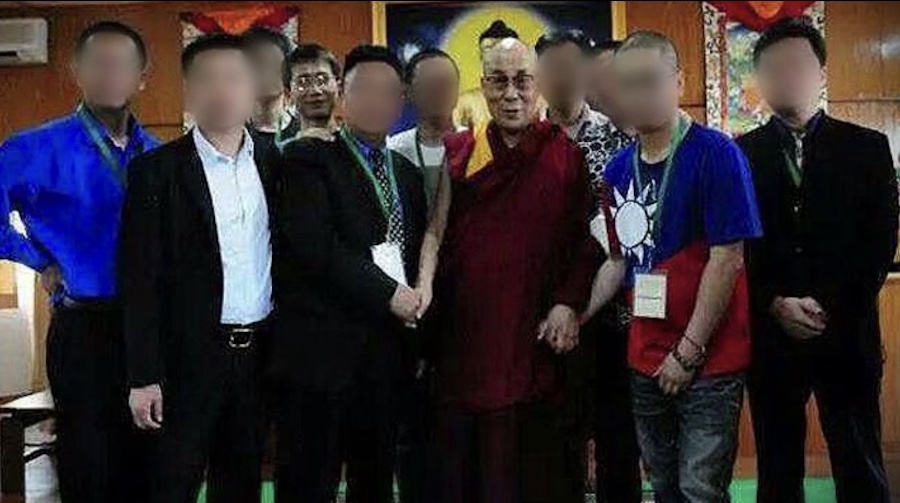 Dharamshala: Official discrimination in job allocation, an education system that is weighed painfully against them and massive competition from Chinese graduates is forcing Tibetan students to take to the streets to fight for jobs in Chinas fiercely competitive job market.
Dharamshala: Official discrimination in job allocation, an education system that is weighed painfully against them and massive competition from Chinese graduates is forcing Tibetan students to take to the streets to fight for jobs in Chinas fiercely competitive job market.
In June 2006, about 100 Tibetan students of the Qinghai Natonalities Institute based in the provincial capital of Xining took out a rare street demonstration to demand better job opportunities for Tibetan graduates.
Reports say the ringleader of this protest was bundled off to prison. The rest are believed to be free.
The students made three demands. The authorities must make good on their promise that the government would nurture and look after minority nationality cadres and scholars. Though this is a stated policy of the government, it is never really implemented to make any appreciable difference on the lives of many graduating minority students.
The second demand of the students was to stop the policy of sending Chinese graduates to participate in Chinas western development programme. Under this programme, the central Chinese government sends about 200,000 students every year to assist in the development of the backward western regions. In reality, these Chinese students are taking away the jobs of the minority students. The students from the Mainland are supposed to live in the western regions for a period of three years and then return to their hometown. In practice, many decide to stay back, benefiting from the extra rights and incentives given to them and continuing to hold the jobs for minority graduates. The protesting Tibetan students want this practice to be stopped.
 The third and final demand of the Tibetan students is to scrap the abuse that has crept into the entrance test for admission into universities. Those minority students seeking higher studies at universities in the Mainland or schools in their regions enjoy a lower pass percentage than Chinese students. However, Chinese students living in minority regions register themselves as minorities or buy their hukou, the household registration certificate, to avail of the lower pass percentage. The Tibetan students want this practice stopped.
The third and final demand of the Tibetan students is to scrap the abuse that has crept into the entrance test for admission into universities. Those minority students seeking higher studies at universities in the Mainland or schools in their regions enjoy a lower pass percentage than Chinese students. However, Chinese students living in minority regions register themselves as minorities or buy their hukou, the household registration certificate, to avail of the lower pass percentage. The Tibetan students want this practice stopped.
The full scope of how the administration is biased in favour of Chinese students was revealed on 30 September when about 1700 students competed for 100 jobs in the administration of the Tibet Autonomous Region (the TAR). 98 of the jobs went to Chinese students. Only two job placements went to Tibetan students.
The blatant discrimination and the demands of the Tibetan students in Amdo found an echo in the students of Lhasa University, who gathered before the Tibet Autonomous Regions Peoples Government in the Tibetan capital in October and memorialised the authorities. Their main point in their petition was the demand for jobs from the the TAR authorities. Reports say members of the Lhasa Citys Public Security Bureau (PSB) and Peoples Armed Police (PAP) surrounded the students. The fear of the authorities was that this might spread to other regions and more direct and dangerous political demands might creep into the demand for better employment opportunities.
Reports say the TAR officials met the students and promised them jobs. Other reports say that about 27 of the students were received in the TAR office building and were threatened with dire consequences for themselves, their families and relatives if the protest was not stopped at once.
Earlier on, students of Shigatse, Tibets second largest town, and demanded jobs and an end to corruption and abuse in the allocation of jobs.
The demand for job opportunities for Tibetan graduates was first raised most famoulsy by about 300 students of Golog in Amdo in north-eastern Tibet. In typical nomadic fashion from 7 September to 7 October 2004, they pitched tents in front of government offices to highlight their demands. They also demanded the use of Tibetan and Chinese languages in both schools and offices. Reports say Chinese officialdom till now has done nothing about these demands.
(www.tibet.net is the official website of the Central Tibetan Administration of His Holiness the Dalai Lama.)









